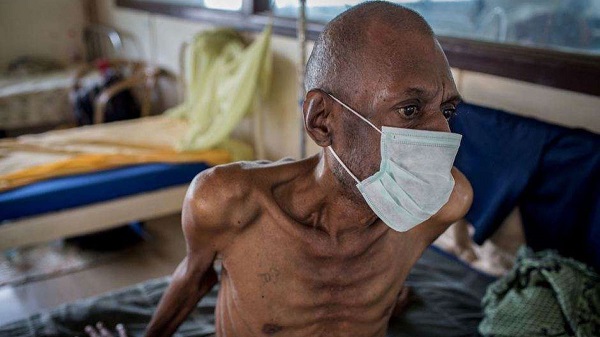
A team of stakeholders led by the National Tuberculosis, Leprosy and Buruli Ulcer Control Programme (NTBLCP) has launched One Impact community-led monitoring of tuberculosis response in Nigeria.
Speaking at the event on Wednesday in Abuja, national coordinator, NTBLCP, Dr. Chukwuma Anyaike, said that the monitoring mode is an intervention that would transform the national TB response in the country so that it is rights-based, gender-transformative and people-centred.
Anyaike said that the intervention would build a better understanding of the links between human rights and TB, so that duty bearers and rights holders understand their respective responsibilities and rights.
“Using technology, OneImpact will help develop an accountability mechanism to trigger action and enhance responsibility in the TB response in the country,” he said.
The coordinator said that the intervention would rely on the continued engagement of affected communities to monitor the TB response.
According to him, the data generated by communities will strengthen the TB monitoring and evaluation system, improve community advocacy, inform and support the evaluation of programmatic interventions so that barriers can be overcome and Nigerians can be reached with essential TB services.
He said that putting people at the heart of the TB response is critical for ending TB.
“Every year, health systems miss millions of people affected by TB because of barriers to health services, human rights violations, stigma and a lack of access to support services,” he said.
A former Nigerian international and presidential aide, Mr. Daniel Amokachi, said that TB-related stigma has been identified as a major obstacle for patients seeking medical care and completing a full course of treatment.
Amokachi said that he understood how people living with TB feel while noting that TB stigma puts lives at risk and, unless it ends, TB would not end.
He, however, called on the government at all levels to prioritise the strengthening of community TB interventions that overcome barriers to accessing quality TB services, increase community and civil societies’ engagement and improve the impact of national TB programmes at all levels.
Giving a presentation on OneImpact Implementation, the executive director, Debriche Health Development Centre (DHDC), Mrs. Deborah Ikeh said that the platform is a digital alert system that can be used by people and communities affected by TB to track and troubleshoot issues related to the availability and accessibility of quality TB services.
Ikeh said that the technology, developed in partnership with community-based partners, has an integrated feedback loop mechanism to inform communities and TB programmes of current gaps for them to rapidly respond and ensure the continuity of quality TB services for the people and communities affected by TB.
“In response, OneImpact is a digital platform made up of three tools that work together to provide a comprehensive community empowerment, community engagement and community-led monitoring solution that puts people at the heart of the TB response.
“In pursuit of this goal, OneImpact Contract Lifecycle Management (CLM) aims to empower people affected by TB with information, ways to engage and report TB challenges, as they relate to: barriers to TB health services, human rights violations, TB stigma and barriers to TB support services.,” she said.
Ikeh further said that the multi-sectoral response teams would subsequently mobilise to address and overcome these TB challenges at local and programmatic levels.
She called the app “a downloadable mobile application for people affected by TB. It provides people affected by TB with information on TB, their rights and TB care and support services”, as well as provides spaces for people affected by TB to connect virtually and report challenges for a rapid response and resolution.
“[There is a] First Responder Dashboard which allows first responders to track, coordinate and mobilise a response to the challenges reported.
“[The] Accountability Dashboard is a platform for community advocates and other stakeholders to monitor and analyse trends on TB challenges and to generate CLM reports for advocacy, action and programmatic change,” she explained.

